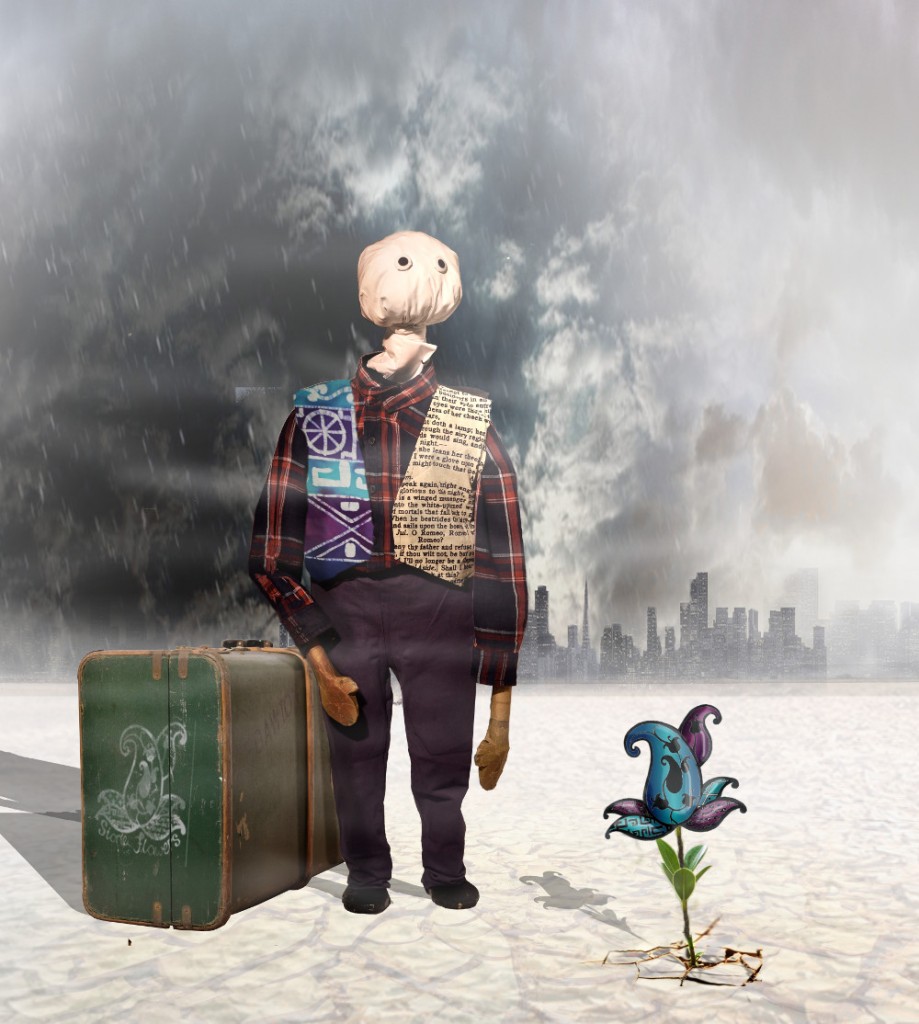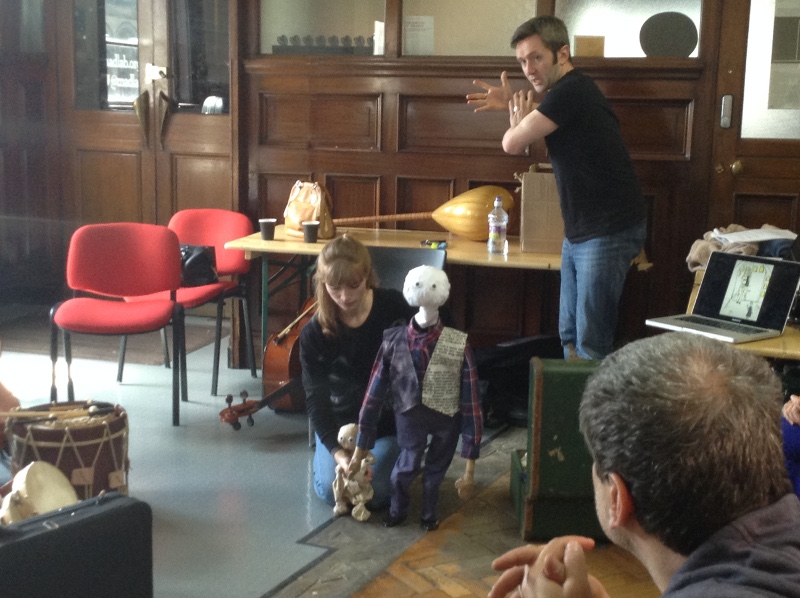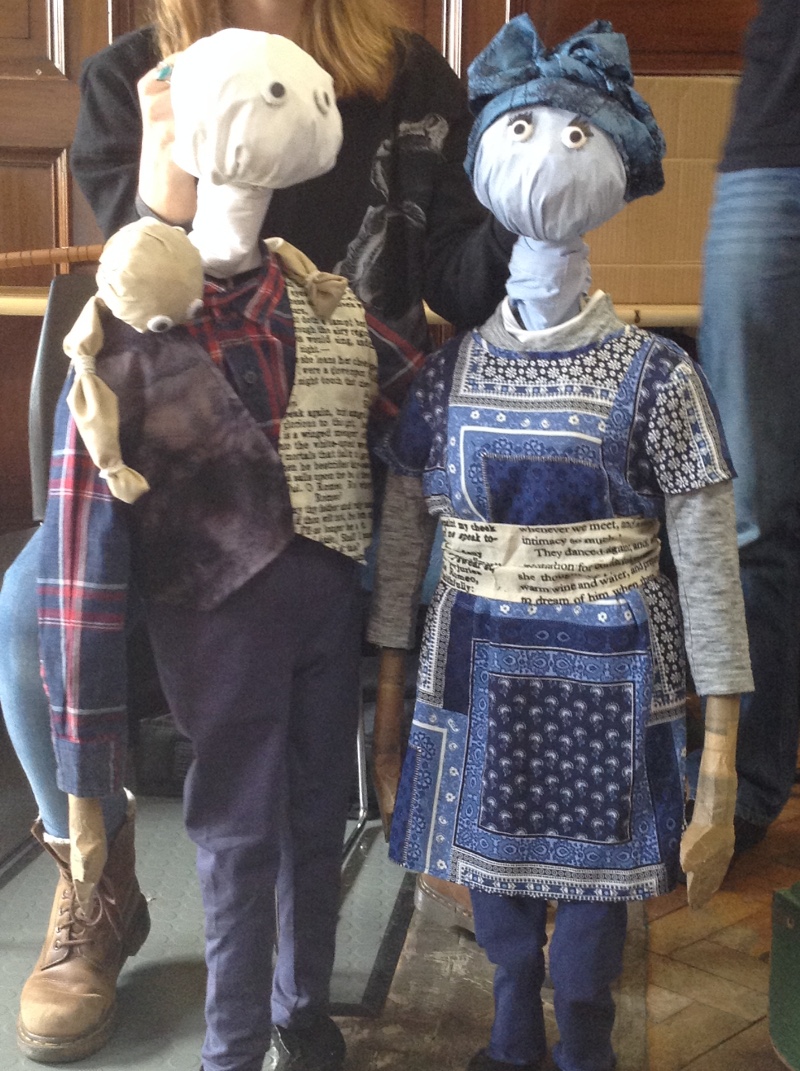By Music Action International volunteers Izzy Pattuzzi and Ceri Short.
Gone: new, unique theatre production will premiere at the Bridgewater Hall, Manchester, during Refugee Week 2016.
Gone is a fictional tale of a family whose home has been destroyed and who must risk their lives to find safety. Inspired by the true stories and experiences of refugee torture survivors, Stone Flowers, the story portrays the real life struggles and hopes of refugees from around the world.
The story will be told through the eyes of beautiful hand-crafted puppets from theatre company, Box Tale Soup, interwoven with an atmospheric, original score composed by Stone Flowers.
Stone Flowers, supported by Music Action International and Freedom from Torture, have been making music together since 2011. This is the first time that they have worked on a piece of theatre and the group is thrilled to be collaborating in such a unique way to bring their story to the stage.
During weekly sessions, Stone Flowers have written poems, shared personal experiences to develop the original story, and created music together, developing original, soulful melodic ideas, with lyrics in different languages. The group share their ideas and discuss their thoughts and experiences with one another, giving each other space to explore their own creativity.
“Refugees are human. They need consideration, freedom and acceptance in society.” –Frank
Some of the important messages Stone Flowers want to convey through Gone include the struggle for safety and the arduous journey to find it, the frustrations of claiming asylum in the UK, the stress of refusals and threat of being sent back to danger in their home countries, inadequate support and housing, the lack of understanding in society about their situation, and the inequality of power.
I wish for people to understand the difficulties of leaving your own country. Leaving your life and family behind.” – Sepideh
Having the freedom to express emotions and voice personal messages through music is what many from the group find most special about Stone Flowers, which uses music to enable the recovery from trauma of asylum seekers and refugees. Individuals who have been through traumatic experiences including armed conflict, war and torture, and who have been forced to leave their home countries, are able to come to a safe environment and express themselves in this intimate and supportive group.
“Violence is the reason people leave their country. We need to reflect this in our songs. We are victims of violence.” – Frank
Here they can socialise with other members who understand the difficulties of adjusting to a new, unfamiliar lifestyle. Having friends who understand their struggles and can be supportive gives them the strength and hope that helps lead them towards recovery.
“I hope that Stone Flowers will keep going further and I hope that I will make a lot more friends thanks to Stone Flowers.” – Titi
The production premieres on Friday 24 June, 1-2pm, at the Bridgewater Hall in Manchester, celebrating Refugee Week. It will be followed by a Q&A session with members of Stone Flowers, Box Tale Soup, Music Action International and Freedom from Torture. You can join the conversation by following the MAI live Twitter feed of the Q&A at @MusicActionInt using the hashtag #Gone:RefugeeWeek.
We are thrilled that tickets for the performance have already sold out, but there’s still chance to see the show as Box Tale Soup and Stone Flowers will be performing in London in December 2016 and will take the production on a national tour of the UK in 2017. Keep up to date with the latest developments at www.musicaction.org
Find out more about Stone Flowers. – www.youtube.com/watch?v=0riM-qXW-ss
“Hope in life is of course after torture.
Hope means the end of misery and torture –
because the different sort of torture on
this earth puts man into despair.
Living in peace for each of us is living like our neighbours,
to live with the hope to provide for our family
and to work also in peace,
to rent a house in which we can live a better life
and be at ease.
It is only then that we can speak of hope.
Hope, Oh! Oh! … where are you?”
David


